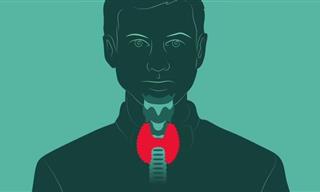Bowel movements may not be the ideal topic for a dinner conversation, but it’s extremely important to be aware of how your internal systems are functioning. There’s nothing quite as uncomfortable as going to the bathroom and feeling like you’ve not quite finished the job when you leave. Not only is it a physical discomfort but it can leave you wondering if there are bigger issues occurring within your body that are causing it. This guide will help you understand how healthy and unhealthy bowel movements occur, the symptoms of incomplete bowel movements, what can cause it and how it can be treated.
What is an incomplete bowel movement?

Anyone suffering from irritable bowel syndrome (IBS) is likely familiar with the uncomfortable sensation of “incomplete evacuation”. It is a subjective sensation that occurs when one feels like they have not completely evacuated their bowels. However, this struggle is not isolated only to people with IBS. Despite how common this affliction is, there has been limited research done into the symptoms, causes, and treatment of this particular issue. Understanding what causes an incomplete evacuation can go a long way in figuring out self-care strategies to reduce instances of incomplete evacuation.
How does a complete bowel movement occur?

After food is eaten, during the process of digestion, stool matter moves through the large intestine, during which water is absorbed from the stool matter. This is what allows the stool to solidify. After this, the stool matter makes its way to the sigmoid colon and then finally to the rectum where it is prepped to be passed. This is meant to happen about one to two times a day, depending on an individual’s biorhythms.
What causes an incomplete evacuation?

While there is still much research to be done to know the general range of causes of this problem, there are two major physiological processes associated with IBS and constipation that are believed to be the cause of incomplete evacuation. The first is called visceral sensitivity, which is when the internal organs, such as the large intestine, the anus, and the rectum have an increased sensitivity to pain. This can affect the passage of the stool through the rectum.
Motility dysfunction is the second possible cause, which inhibits the digestive tract from functioning smoothly. This can affect the formation of the stool and leave you feeling unsatisfied after evacuation.
What are your options for treating this?

1. In cases where one suffers from bouts of constipation, it may, in fact, be physiological issues causing the incomplete evacuation of your bowels. Treating the underlying cause of constipation with medications or laxatives may be able to result in healthier and complete bowel movements.
2. Empty the bowels as much as possible routinely, and at the same time every day. For most people, their biorhythm dictates that the strongest urges to evacuate their bowels are in the morning.

3. If you are suffering from dyssynergic defecation, which is a pelvic floor dysfunction of the nerves and muscles of the pelvic floor, this can result in constipation. Biofeedback can be extremely helpful as a treatment.
4. With persons suffering from chronic diarrhea, the sensation of an incomplete bowel movement will often occur following a bowel movement. If this sensation cannot be traced to any physiological issue, it is likely only a feeling. In such cases, it can be helpful to give yourself gentle reminders that the bowel has been fully evacuated.
5. Finally, when you’re on the toilet, it can drastically help the body to use relaxation exercises, which can settle and calm your body, muscles, and nerves which can effectively allow you to pass your stool.
 Go to BabaMail
Go to BabaMail

























































